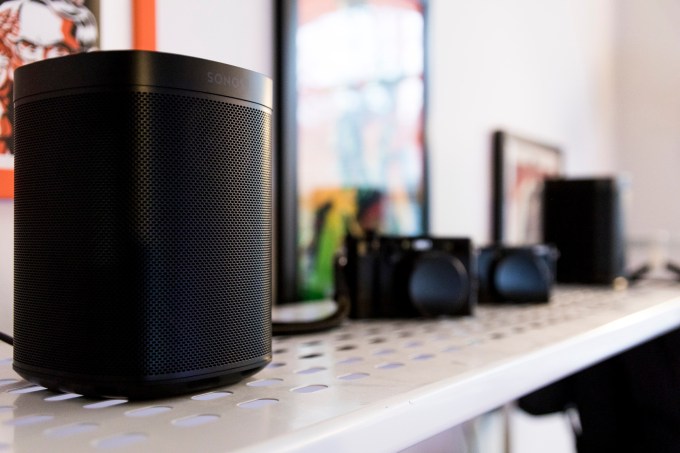Facebook’s latest PR crisis has cast a lurid spotlight on a GOP-led publicity firm called Definers Public Affairs, after a New York Times investigation revealed last week the firm had sought to discredit Facebook critics by, in one instance, linking them to the liberal financier George Soros — a long-time target of anti-semitic conspiracy theories.
The sight of any company paying a firm to leverage anti-semitic and antisocial sentiment on its behalf is, to put it very politely, not a good look.
For Facebook, whose platform is aflame with socially divisive fakes, it’s bombshell bad news.
Although it’s not the only tech firm caught tapping Definers’ oppo research tactics. A piece of internal moves news the PR firm emailed us last month, in happier times for its own reputation, containing promotions and personnel moves in its Washington office, enthused about Definers adding “three new team members to its Bay Area office in California”.
“Today, Definers is a team of 40 with locations in Washington, D.C., San Francisco, and an affiliate operation in London,” the upbeat announcement ended.
How well the Definers brand survives its brush with Facebook remains to be seen.
Tarnishing
Facebook was quick to issue a rebuttal to the NYT article, claiming it had never asked Definers to generate fake news or anti-semitic memes in an attempt to smear its critics.
But it could not deny it had hired a mud-slinger in the first place, raising questions about due diligence, business oversight and, well, whether Facebook has any self perspective at all in the midst of a global brand trust scandal.
Zooming out for a second, you do also have to pause and wonder at quite how radioactive the corporate culture must be when the ‘solution’ to a string of hugely damaging disinformation scandals is to reach for whataboutery and even actual fake news, as the NYT has claimed, to try to muddy the waters in your favor.
It’s almost as if manipulation is in the corporate DNA.
Though again Facebook has decried knowledge of exactly what Definers was up to on its behalf. Yet not knowing isn’t any kind of defence when your business stands accused of defective oversight, self-serving opacity and having a vacuum where its moral compass should be. Accountability? Facebook’s algorithms keep saying no.
It’s still not clear which individual (or individuals) at Facebook actually signed on the line to put a controversial PR outfit to work slinging mud on its behalf.
In a call with reporters the day after the NYT story broke Facebook’s founder Mark Zuckerberg claimed not to know — suggesting: “Someone on our comms team must have hired them.”
He then went on to imply — in the same breath — that there could be more skeletons in the closet, reaching for his favorite solution to self-made scandals (another self-audit), by saying: “In general we need to go through and look at all the relations we have and see if there are more like this.”
As we reported earlier Facebook’s comms department has a bunch of ties to Definers. While Joel Kaplan, its longtime chief lobbyist, looks a very likely candidate for an intimate acquaintance with ‘oppo research’ dark arts — if indeed COO Sheryl Sandberg is in the clear on this one.
But without an actual answer from Facebook we’re left to speculate.
Meanwhile, Facebook users, investors and lawmakers should absolutely be left staggered at the WTFuckery of all this. How is it possible that no one in senior Facebook management knew what its left hand was doing? Where was even basic oversight of its own crisis PR response?
And who in its exec team actually feels accountability for all these fuck ups since no one with actual responsibility has fallen on their sword (though CSO Alex Stamos left recently, apparently of his own volition) — despite 2018 being another annus horribilis for Facebook, with a freshly cracked pandora’s box of privacy scandals, trust breaches and PR own-goals.
Zuckerberg’s artful political question-dodging on home turf and over the pond, in the European parliament, has merely served to further enrage lawmakers who — much like journalists — really don’t like being fobbed off with PR guff.
As a strategy the tactic necessarily burns its own runway. And it already looks to have boxed Facebook’s leadership in.
This is also — let’s not forget — the year that Zuckerberg made it his personal mission to ‘fix Facebook’. Frankly he might have had more success with another f-word.
Mud sticks
Whoever at Facebook made the call to bring in Definers opened the door to dirt-digging and smear tactics that are euphemistically passed off in political circles with the vanilla-sounding label of ‘opposition research’.
More knowingly it’s referred to as ‘the dark arts.
The basic modus operandi is to locate (or indeed generate) selective information and seed it to the media (or, nowadays, the socials) with the intention of discrediting an opponent.
These tactics are typically associated with the free-for-all of campaign season politics. And even there it’s always a dirty, unpleasant and ugly business.
Smear tactics and cynically spun counter narratives are also of course the bread and butter of murky interest groups seeking to manipulate public opinion without disclosing their actual agenda (and funders).
Plenty of wealthy individuals and industry groups have been fingered on the non-transparent lobbying front. And social media platforms like Facebook have, ironically enough, made it easier for shadowy agenda-pushers to deploy astroturfing techniques to mask and pass off their self-interested lobbying as grassroots activism — and thus to try to shift public opinion without being caught in the act.
Facebook engaging a PR firm to fling mud on its behalf squares this virtue-less circle.
And the connective tissue is that all these self-interests are being very well-served indeed by unregulated social media.
Since the NYT story broke, Facebook has claimed journalists were well aware that Definers was working on its behalf. But the truth is rather murkier there too.
We checked our inboxes and none of the pitches Definers sent to TechCrunch made an explicit disclosure that the messages they contained had been paid for by Facebook to push a pro-Facebook agenda. They all required the recipient to join those dots themselves.
A proper journalist engaging their critical faculties should have been able to deduce Facebook was the paying customer, given the usually obvious skew.
But if Definers was also sending this stuff (and indeed worse things than we were pitched) out more widely, to content seeders and fencers that trade on framed outrage to drive online clicks, their tasty-sounding tidbits would not have been so critically parsed. And angles they were pushing likely still flowed where they could influence opinion — thanks to the ‘inverse’ osmosis of social media.
(As far as we can tell none of the Definers’ oppo research pitches that we received ended up in a TechCrunch article — well, until now… )
You might find it interesting…
Here’s an example of Definers’ oppo mud-slinging we were sent targeting Apple and Google on Facebook’s behalf:
Just came across this – thought you might find it interesting: https://digitalcontentnext.org/blog/2018/08/21/google-data-collection-research/
“A major part of Google’s data collection occurs while a user is not directly engaged with any of its products. The magnitude of such collection is significant, especially on Android mobile devices, arguably the most popular personal accessory now carried 24/7 by more than 2 billion people.”
The study’s findings are rather shocking… It really highlights how other tech companies should be looked at critically – scrutiny shouldn’t just be on FB for data misuse. Apple & Google have been perpetrators of data abuse as well…
“Scrutiny shouldn’t just be on FB for data misuse” is the key line there, though it’s still hardly a plain English disclosure that Facebook paid for the message to be sent.
We received multiple Definers’ pitches on behalf of what looks to be three different tech companies — and only one of these is explicitly badged as a press release from the firm paying Definers to do PR. (In that case, e-scooter startup Lime.)
We weren’t entirely convinced even then — given the sender was a random public affairs company — and ended up emailing our own Lime contacts and CCing their press email to double-check.
Generally, though, the Definers pitches we received looked nothing like traditional press releases.
A different pitch that was also sent (we must assume) on Lime’s behalf sought not, as the aforementioned press release did, to trumpet a positive PR goal (of Lime shooting to make its global fleet carbon neutral) but to fling dirt on rival scooter startup, Bird.
Dirt doesn’t fit in a traditional press release template though. So instead we got this email…
I read your piece on Bird’s custom scooter and delivery. Just wanted to flag that Bird’s numbers seem off based on what they have listed on their website:
https://www.bird.co/They’ve taken a bunch off the list. Seems odd since they just announced 100 cities two weeks ago. Thought you’d find this interesting.
Other similarly mug-slinging Definers pitches we received included more fulsome info dumps in the body of the email — not just a link or few lines trailing something selectively “interesting”.
Sometimes these data dumps came with key lines highlighted. Sometimes there was also a chattily worded email intro (like the one above) to frame the content — typically including a clickbait-style appeal to journalistic curiosity. (The word “interesting” seems to be a popular choice with Definers flaks.)
At other times the pitches didn’t include much or any foreplay at all.
One “ICYMI” email subject line pitch was introed in the email body text without fanfare — with just two words: “see below”. Another had no intro text at all.
The “see below” content in the aforementioned pitch referred to this Mashable article — literally pasted word for word but with two paragraphs highlighted, drawing attention to the author’s claim that the next iPhone “could have significantly slower LTE data speeds than competing Android phones”; and to an “independent” speedtest study cited in the article (which was actually carried out by a company owned by Mashable’s own parent company… ) — and which the author concludes “revealed just how inferior Intel’s modems are compared to Qualcomm’s latest modems”.
It’s not yet been confirmed who Definers was working for to spread that particular cut-n-paste conjecture — but one obvious candidate is Qualcomm. (And for the why, the Mashable article includes an accidentally helpful pointer, noting the pair’s legal disputes over patent royalties and Apple moving away from using Qualcomm chips.)
Another “ICYMI” cut-n-paste job that Definers sent us also targeted Apple — though likely, in that case, the mud was being flung on Facebook’s behalf.
Here the pasted content was this article, by the National Legal and Policy Center, reporting on an Apple shareholder filing a proposal for the company to make a report on human rights and free speech.
So for free speech read ‘Facebook’ as the most likely self-interested source.
(The NYT article also suggested Zuckerberg was especially unhappy about Apple CEO Tim Cook publicly blasting privacy hostile business models — suggesting Facebook might have been keen to find a way to throw shade at its claim to ‘human rights’-based moral high ground.)
As an aside, the Apple-China talking point surfaced by Definers via the aforementioned National Legal and Policy Center article is also, interestingly enough, something Facebook’s former CSO Stamos has sought to hammer hard on in public…
And while Stamos may have left the building at 1 Hacker Way he’s continued to speak up on behalf of his former employer and its choices in public — and liberally fling blame at Facebook’s critics.
That Facebook’s ex-CSO is using the exact same attack points as Definers is interesting in terms of the PR alignment. How deep does that strategic ‘infowars’ rabbit hole go?
Returning again to Definers, in another instance the firm reached out to me via email to “pass along some context” after I wrote this article — about a tool created by Oxford University’s Oxford Internet Institute to aggregate junk news being shared on Facebook.
“Facebook ahas [sic] been working to curb the proliferation of this kind of news and there have been encouraging results from three different studies in the past month,” wrote the flak, flagging three studies to back up his claim — summarizing them in short bullet points (without linking to the cited research).
The ‘context’ being pitched here boiled down to:
- an academic study that Definers claimed suggested “interactions with fake news sites declined by more than half on Facebook after the 2016 election”;
- a metric created by another university to measure the Facebook distribution of the number of sites that share misinformation — again with the pitch claiming ‘dramatic improvements’ for Facebook at the same time as flinging shade on Twitter (Definers wrote: “The metric was very high for Facebook in 2016 — much higher than Twitter’s — but beginning in mid 2017 it was dramatically improved, and now Facebook has 50% less of what the University of Michigan calls “Iffy Quotient content” than Twitter”);
- and a study by French newspaper looking at 630 French websites and claiming “Facebook engagement with “unreliable or dubious sites” has halved in France since 2015”
As another aside Facebook policy staffers recently cited the exact same ‘Iffy Quotient’ metric in a letter to the UK’s DCMS committee — which has been running a multi-month enquiry into online disinformation and trying (unsuccessfully) to get Zuckerberg to personally answer its questions — as part of several pages of ‘contextual filler’ Facebook used to pad out yet another letter to UK lawmakers that contained the word ‘no’.
Committee chair Damian Collins was not impressed by Facebook’s attention-sapping tactics.
“We will not let the matter rest there, and are not reassured in any way by the corporate puff piece that passes off as Facebook’s letter back to us,” he wrote. “The fact that the University of Michigan believes that Facebook’s ‘Iffy Quotient’ scores have recently improved means nothing to the victims of Facebook data breaches.”
Well, quite.
Further reflections
Facebook’s approach to its own publicity brings to mind something that academic and techno-sociologist Zeynep Tufecki wrote earlier this year — when she asserted: “The most effective forms of censorship today involve meddling with trust and attention, not muzzling speech itself.”
Although, in that moment, she was actually talking more about online disinformation tactics than the distribution platforms themselves.
Yet the point does seem to stand — when, in Facebook’s case, the platform business appears to be reflecting (or, well, channeling, via its PR) the same problematic qualities that mire and/or bog down content on Facebook.
Again, returning to how Definers sought to engage with us, in another more labor intensive episode, it pitched another TechCrunch journalist — ahead of a Senate Intelligence hearing which was attended by Facebook’s COO, Sheryl Sandberg and Twitter’s CEO Jack Dorsey. But not by any senior execs from Google.
Here the firm worked to flag up and critically frame Google’s absence, after the Facebook adtech rival had declined to send either of the two C-suite execs the committee had asked for.
“Hey… Are you covering Google’s lack of cooperation for next week’s Senate Intel hearing with Twitter & FB? If so, let me know. May have a new angle for you,” was its opening gambit to a TC colleague in an email sent on the last day of August (the committee hearing took place on September 5) — which earned it a “happy to entertain a pitch” response from the journalist in question.
Definers then suggested a phone call. But after about an hour of radio silence it emailed again, now fleshing out its ‘Google isn’t taking the committee’s concerns seriously’ angle:
I’m sure this is on your radar, but wanted to flag something for you. Google isn’t sending an exec to testify at next week’s Senate Intel hearing:
From all reports on the Hill, it will be an empty chair. Given recent news that disruption campaigns have been launched by the Russians and Iranians, it seems very irresponsible on their part. After all, Google is not only the most powerful search engine, it also has one of the largest market shares on digital ads.
I think there is an interesting story on how Twitter and Facebook (while both are far from perfect) are taking the committee’s concerns seriously and Google is absent.
Thoughts?
Note the “both are far from perfect” fillip aimed at Twitter and Facebook to lay down a little light covering fire for a reframed double-barrel assault on Google as the really big baddie for not even showing up.
A few days later the same Definers’ staffer pitched this reporter again, now the day before the Senate hearing — offering “an interesting backgrounder re the committee’s members’ campaign expenses for FB ads, campaign contributions from big tech, and the data tools senators are using to track visitors to their website”.
After getting through on the phone this time they emailed to hammer home a final thought: “Check out the attached docs – there’s a level of hypocrisy here especially before tomorrow’s hearing with FB & Twitter”.
More smear tactics — now aimed directly at the lawmakers who would be asking Facebook tough questions by seeking to attack their moral right to defend privacy.
A month later the Definers operator was back pitching the same TC reporter. Though here it’s even less clear who’s the paymaster behind this particular pitch.
“Hey – any interest in taking a look at Apple employees’ political contributions from the last 14 years or so?” the PR opened.
The pitch was for a report written by another Washington-based PR firm, called GovPredict — whose website describes its business as “research, analytics, and actionable intelligence for winning public affairs campaigns” — which Definers said it could share ahead of release time, under embargo.
The report in question consisted of a six-page proprietary “analysis” conducted by the other PR firm which claimed to summarize the recipients of political contributions of Apple employees — slicing the self-structured data by political party and breaking out contributions to key individuals (e.g. Hillary Clinton, Obama etc).
“In total, 91% of Apple employee contributions have gone to Democrats, and 9% to Republicans,” concluded the ‘report’ — which had been compiled by a PR firm whose stated business is “winning public affairs campaigns” on behalf of its clients, and which was seeded to a journalist by another PR firm being paid by an unknown tech firm to daub Apple in partisan colors.
Whoever was paying to paint a picture of Apple in near pure Democrat blue clearly had an agenda to peddle. Just as clearly, they didn’t want to be seen doing the peddling themselves.
Nor did they need to — given the mushrooming influencer PR industry that’s more than happy to be paid to fling mud on the tech industry’s behalf. (Even, seemingly, at the same company for different paying clients. Nice but dirty business if you can get it then.)
Yet many of the wider problems of big tech which are the root cause of their brand trust crises boil down to a problematic lack of transparency. And the chain-linked lack of accountability that flows from that.
Throwing more mud at this problem doesn’t look like a fix for or an answer to anything.
Nor is it a great look for a scandal-hit adtech giant like Facebook, whose founder claims to be hard at work fixing a flawed platform philosophy that’s failed repeatedly on integrity, transparency and responsibility, to be found dipping into a murky oppo research well — even as it’s simultaneously trying to cast the specter of regulation from the door.
For dark arts read fresh scandals, as Facebook has now found.
Yet it’s interesting that someone at the company — realizing it was in a trust hole — only knew how to keep digging.

from Apple – TechCrunch https://ift.tt/2KfK6yp











